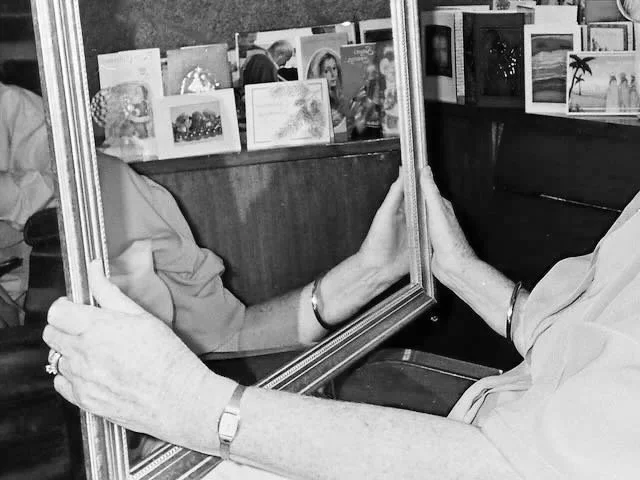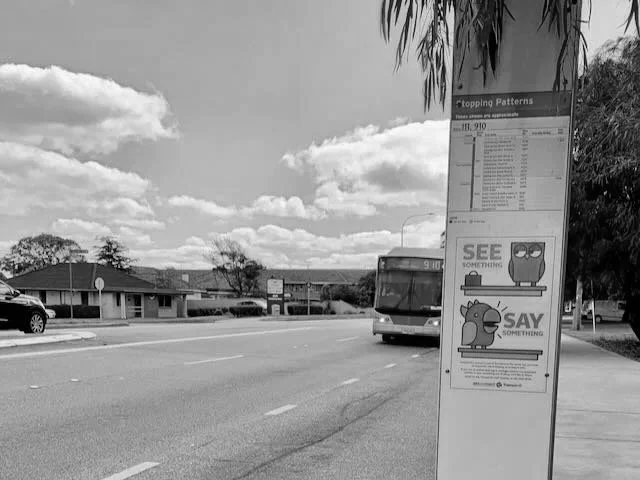What Does the Majority Do?
It’s less the actions of others that we should focus on.
After all, with eight billion souls roaming the earth, the odds of stupidity and hate and mental disturbance of one or two are high.
No.
What we should keep our eyes on is how we respond.
Not the initial, knee-jerk reaction.
No.
What does the majority of the other seven billion and something do?
The Bottle of Wine Test.
The whole world is three drinks behind. If everyone in the world would take three drinks, we would have no trouble. If Stalin, Truman and everybody else in the world had three drinks right now, we’d all loosen up and we wouldn’t need the United Nations.”
―Humphrey Bogart
If you sat down with a difficult person and chatted over a bottle of wine -
What would they admit or concede or confess or declare to you after three, five, or eight glasses?
All Internal.
Step 1: Step Back is all Internal.
Oh woe is me. How unfair life is to me. I feel terrible. I don’t deserve this. I want to give up. The world is against me.
Soak ourselves in self-pity and victimhood.
Only then can we look to what’s happened and what needs to be done in the External.
Step 2: Define the Issue.
Step 3: Assess the Information.
Step 4: Check for Bias - A brief self review.
Step 5: Give a Hearing.
Not Like Us.
That guy pushed the boundaries and poked the bear.
He created trouble.
He verged on disrespectful to the bosses.
He spoke up at meetings when the rest of us knew better.
He questioned some of the decisions that we’d learned not to.
We never knew how he got away with it.
Sometimes we felt uncomfortable at how frank he was about this place.
He was too outspoken.
Predictably, it all caught up with him eventually.
He’s not here any more.
He brought it on himself.
If he’d only kept his mouth shut he’d still be here.
Like us.
Consider This.
Step 1 of the Five Steps to a Good Decision is - Step Back.
It’s an Active Absence of Action.
It’s a Conscious Withdrawal.
For the majority of us who are not, and do not seek to be, ‘Leaders’, there are no Steps 2, 3, 4 and 5.
Stepping back - remaining lost in our own selfishness - is our default state, while someone else moves on to 2, 3, 4, and 5.
If what we see them do appeals - we follow.
Thus making them - A Leader.
So consider this.
Could it be that by merely naming our default state of Stepping Back as Step 1 of Five Steps - we can feel our unfinished business?
(The first job of a Leader is to define reality.)
And that feeling can draw us into Step 2, then 3, then 4, then 5?
Could it be that to ‘teach’ Leadership, we simply need to ‘teach’ that our default state is the first of Five Steps?
Thus ‘educating’ us - educare - ‘to draw forth’?
Until we seek to finish what we started?
And we are the ones who look around and see others following?
‘Leader’.
Souvlaki.
I’d recently started renting in Melbourne and went for a walk along Chapel St.
I came across a shop called Lamb on Chapel and went inside.
I looked at the menu and said to the person behind the counter I’d like a lamb sandwich.
‘Would you like that in a pita bread instead?’
‘Yes, that sounds good.’
‘Some salad?’
‘Great. Thanks.’
‘Tzatziki?’
‘Sure. No idea what that is, but when in Melbourne…’.
It was the best lamb sandwich I’d ever had.
A week later I returned to the café.
There was a different person behind the counter.
‘I’d like some lamb in pita, with salad, and some of that yoghurt … I can’t remember the name…’.
‘Tzatziki?’
‘Yes!’
‘So you’d like a souvlaki?’
Often experts don’t know more than we do about what we need.
They just know what it’s called.
Compared to What?
The problem with advice - whether online, in a presentation, or self-help book, is you don’t know who it’s pitched at.
It’s more than likely that you’re more squared away than most, and that reading ‘advice’ on how to improve isn’t aimed at you, and that it risks creating anxiety that you’re not maximising your performance.
Keep this in mind when you begin feeling inadequate.
The Smallest First Step.
My second-grade teacher, Ms. Edson, told us: If something feels too hard to do, it just means that the first step isn’t small enough. So often when we’re struggling, we tell ourselves that it’s a sign that we’re broken or that something is our fault, and then we freeze. But when something is too hard in the moment, tell yourself Ms. Edson’s advice.
Becky Kennedy
Clinical psychologist, parenting expert and founder of Good Inside
When we Step 1 - Step Back in our Good Decision Making - we start with the easiest thing to do: Being Selfish.
Doing Nothing.
Ignoring a compelling task: the decision before us.
Unless we’ve to real issues - this step should be easy, achievable, and give us enormous satisfaction.
It’s the decision making equivalent of Making Your Bed.
Charcuterie Board.
There’s a story of a young intern at a large company in New York City tasked to get a charcuterie board for an important event.
He went from shop to deli to restaurant asking if they sold charcuterie boards.
None did.
He finally tried a Korean deli whose owner said he didn’t know what a charcuterie board was.
The intern googled ‘charcuterie board’.
‘Do you have carrots, cheese, nuts, some dried fruits?’
‘Yes. Yes. Yes.’
The owner allowed the intern behind the counter to cut and dice.
He soon joined the intern and they chatted as they prepared the charcuterie board.
When the intern went to pay, the owner refused.
‘I had a good time,’ he said.
Sometimes we need to break down the ingredients to break down the fear and ignorance.
Same Data.
A hermeneutic = a lens, framework, or set of assumptions through which we interpret reality.
From the Greek hermēneuein = to interpret / explain / translate.
Same data - different motives = different interpretation.
Pointless Journey.
If we are on a journey of learning and discovery, the temptation is to stop at the place that is most familiar to where we started.
The place that reinforces and confirms our understanding of the world.
‘I know this place,’ we tell ourselves as we pitch our tent.
Making our journey pointless.
Two Temples.
It’s a good idea to acknowledge the work and significance and good of the old temple - before demolishing it for a new one.



















